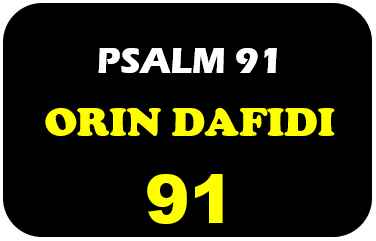
support@yorubalibrary.com
+2348073529208, 07038599574

Yoruba people believe the Supremacy of Eledumare, as the Divine Creator. In the heart of Yoruba culture lies a tradition of praise and eulogy known as "Oriki." While Oriki is commonly associated with people, families, or towns, there exists an even higher form: "Oriki Olorun" – the profound praises directed towards the Divine Being, Olodumare (God). These are not just words; they are expressions of reverence, spiritual acknowledgment, and an evidence of the Yoruba understanding of God's majesty, power, and benevolence. Oriki Olorun serves as a powerful way for individuals and communities to worship the Creator, affirming His supreme authority and unique attributes.
THE ESSENCE OF ORIKI OLORUN
Oriki Olorun is a form of spiritual poetry, an eloquent articulation of God's character as perceived by the Yoruba people. It reflects a theology that sees God as the ultimate source of all creation, wisdom, and life. These praises often highlight attributes such as omniscience, omnipotence, omnipresence, and unmatched compassion. Reciting Oriki Olorun is a way of acknowledging God's unassailable position, expressing gratitude, and invoking His blessings. It is a recognition that the Creator is beyond full comprehension, yet worthy of all honor and adoration.
ORIKI OLORUN: A DIVINE EULOGY
Here is a traditional Oriki Olorun, celebrating the attributes of Olodumare:
Gbogbo oriki l'Olorun ni.
A gbani l'aika bi eni n’owo.
Eledumare, Ajalorun, Oba awon oba.
Alagbawi, Arole Ogo.
Eni to ni gbogbo agbara.
Olowo gbogbo.
Olodumare, Oba to ni orun ati aye.
Adake dajo, eni to da eda.
Oni gbogbo ona.
Alasepe, Eni to nfi’gba re se gbogbo nkan.
Atobiju, Oba t’o tobi ju gbogbo aye lo.
Asoromaye, Asoro tele.
Apata ayeraye.
Oba Mimo.
Oludari, eni to nlo gbogbo eda bi o se fe.
Oloore ofe.
Oba Aiku.
Ayanmo Ogo.
ENGLISH INTERPRETATION OF ORIKI OLORUN:
(Below is an interpretation; precise translation can vary slightly due to the poetic nature of Oriki)
All praises belong to God.
He saves one when least expected, as if having money in hand (when one has none).
The Almighty, He who holds the heavens, King of all kings.
The Defender, The Heir of Glory.
He who possesses all power.
The Owner of all hands (meaning, He has ultimate control).
The Almighty, the King who owns heaven and earth.
He who judges silently (or, the silent judge), the Creator of all beings.
The Owner of all paths/ways.
The Perfectionist, He who does all things at His own time.
He gives one work in the market (opportunities), and supports one.
The Exceedingly Great One, The King who is greater than the whole world.
He who foretells future events, He who speaks without missing.
The Everlasting Rock.
The Holy King.
The Director, He who directs all beings as He wills.
The Gracious One.
The King who never dies.
The Destiny of Glory
CONCLUSION
Oriki Olorun is more than just a list of attributes; it is a living testament to the Yoruba people's understanding and profound respect for the Divine. Through these powerful eulogies, the Yoruba continue to honor and connect with the Supreme Being, keeping alive a rich spiritual heritage that defines their identity and strengthens their faith
You can add yours using the comment section below.

Learn about the Yoruba concept of Ìwà Pẹ̀lẹ́ (good…

Read the full Psalm 91 (Orin Dafidi) in Yoruba lan…